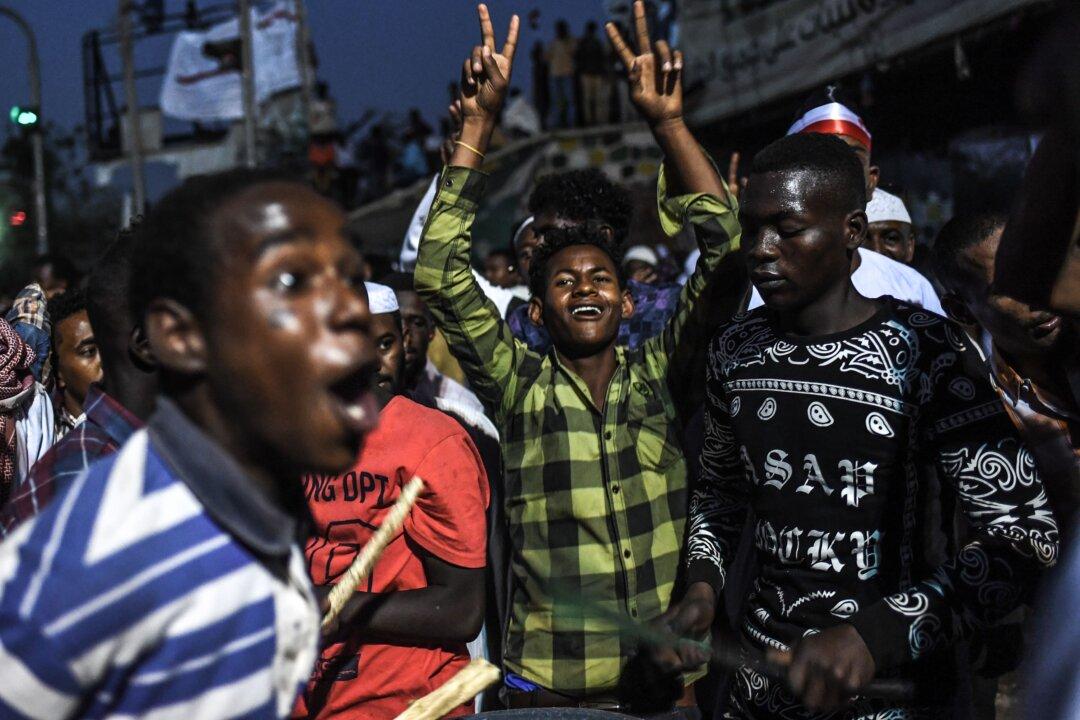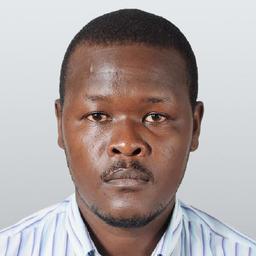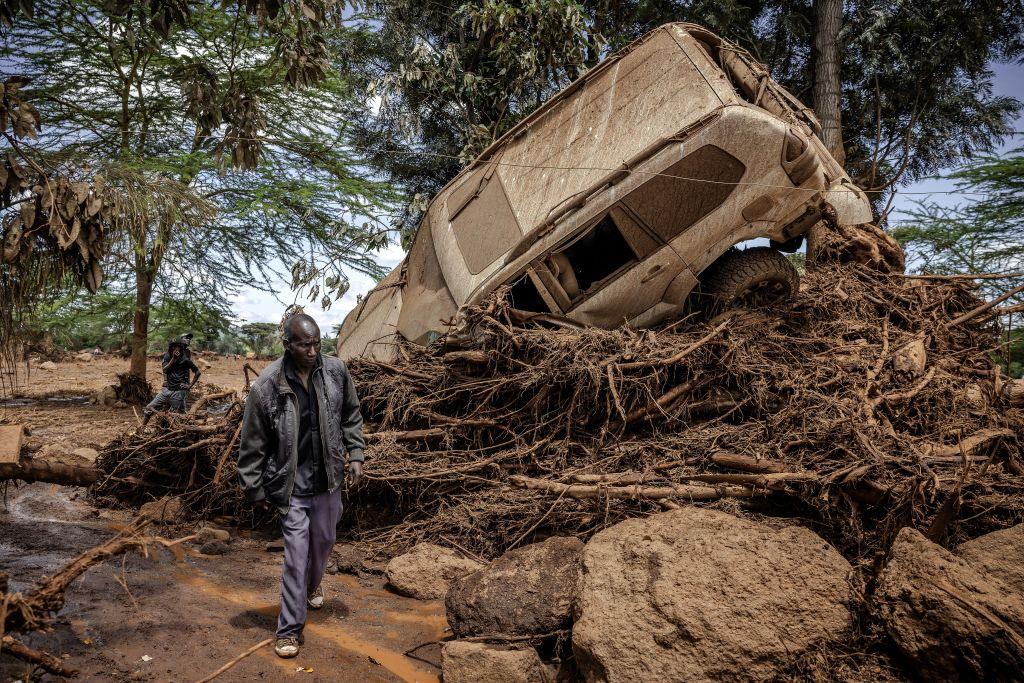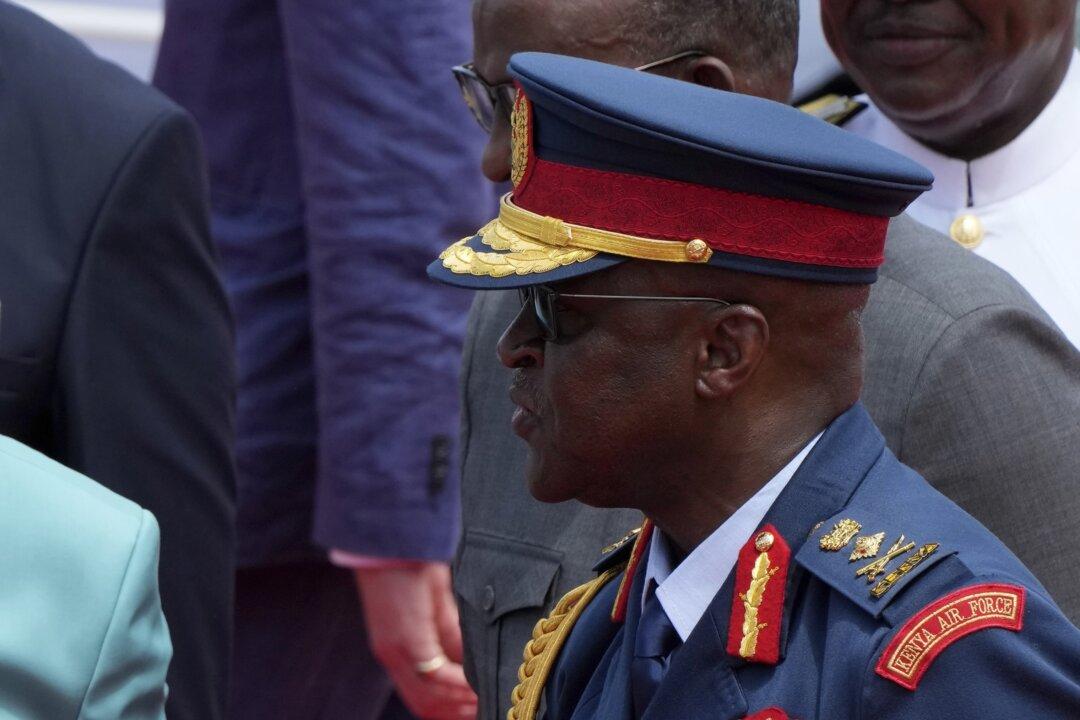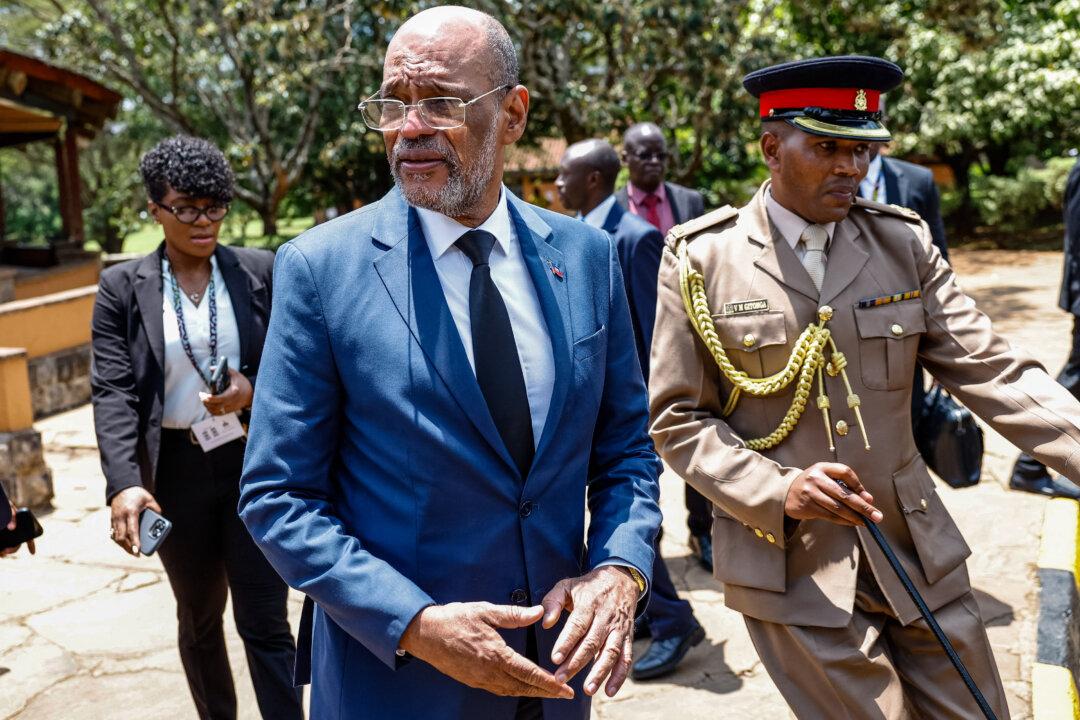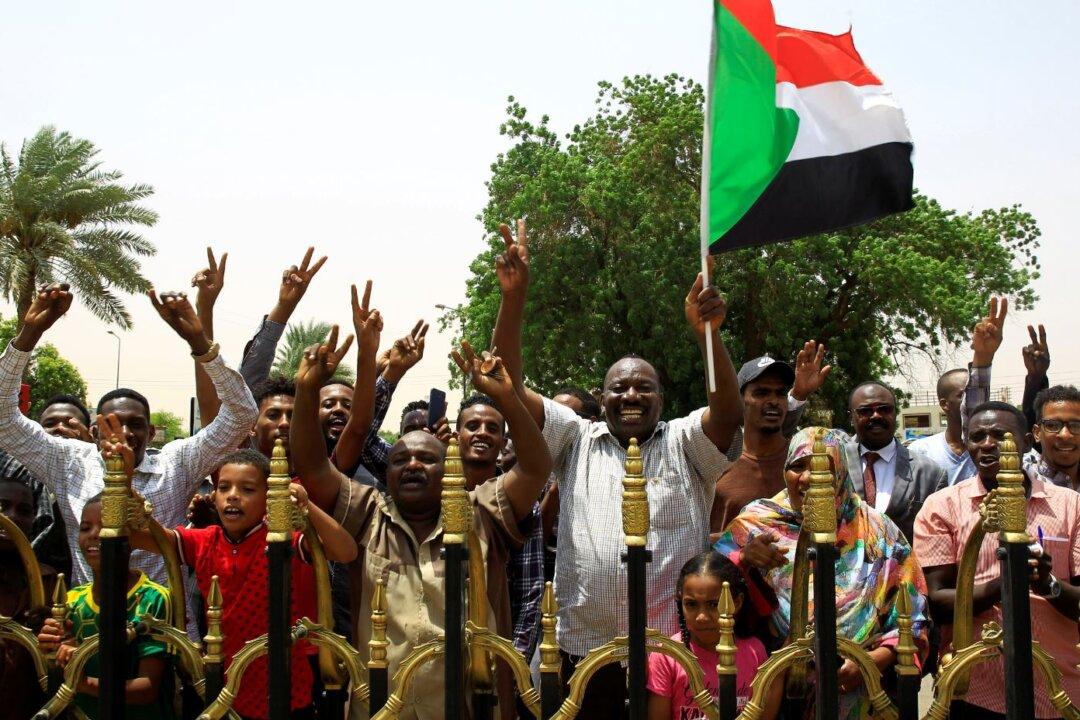NAIROBI, Kenya—Sudanese protestors stepped up their demands for military to hand over power to civilians, announcing plans to name an interim ruling council on April 21 to help speed up the transition.
After months of protests in the capital Khartoum, Sudanese protestors attained one of their goals to oust President Hassan Omar al-Bashir on April 11, when he was forced out of power in a military coup, ending his 30-year tenure.
The protests, which started on Dec. 19, 2018, in Atbara, a city located northeast of Khartoum, were sparked by the rising cost of living and fuel and food shortages, and were met with violence, leading to deaths and injuries.
Protests have continued after al-Bashir’s ouster however as demonstrators continue to call for a transition of power from the ruling military council to elected civilian rulers. The Sudanese Professionals Association (SPA), a body of professionals that organized the protests, has said they will unveil a civilian ruling body on April 21.
